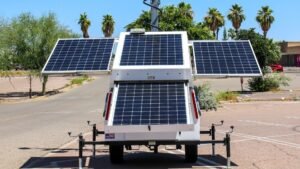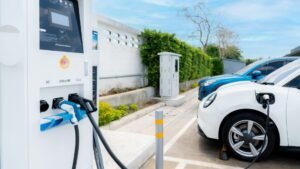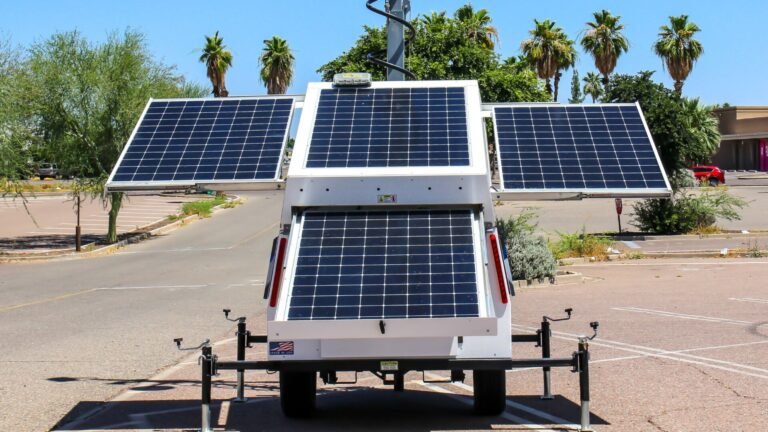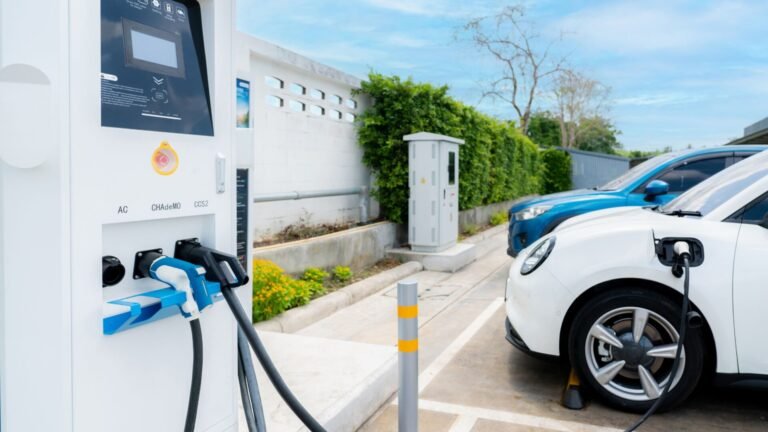The increasing adoption of solar energy in rural Europe is reshaping the economic landscape of many regions, bringing both immediate and long-term benefits.
As the world transitions to cleaner energy sources, the impact of solar energy is becoming more pronounced, particularly in rural areas where traditional economic activities such as agriculture and small-scale industries have long been the primary sources of income.
This shift is not only reducing carbon footprints but also revitalizing rural economies by creating new jobs and opportunities.
This blog explores the economic benefits and transformative potential of solar energy in rural Europe, focusing on how this renewable energy source is fostering sustainable development and economic growth, thereby enhancing the quality of life in these communities.
Solar Energy in Rural Europe: A Catalyst for Economic Growth
Boosting Local Economies
The deployment of solar energy in rural Europe has a significant positive impact on local economies. Solar projects create job opportunities in various sectors, including manufacturing, installation, maintenance, and sales.
The construction and operation of solar farms require a skilled workforce, which leads to the creation of jobs and stimulates economic activity in these regions. Additionally, the development of solar energy infrastructure attracts investment, further enhancing economic growth.
Reducing Energy Costs
One of the most tangible benefits of solar energy in rural Europe is the reduction in energy costs. By generating electricity locally, rural communities can reduce their reliance on expensive imported fossil fuels.
This shift not only lowers energy bills for households and businesses but also ensures a more stable and predictable energy supply.
Moreover, locally produced solar energy can mitigate the impact of energy price volatility in global markets, providing economic stability for rural areas.
The savings generated from lower energy costs can be reinvested in local economies, supporting other economic activities, development projects, and infrastructure improvements such as schools, healthcare facilities, and public services, further enhancing the quality of life in these communities.
Enhancing Energy Security
Solar energy provides a reliable and sustainable source of power, which is particularly beneficial for rural areas that may experience frequent power outages or lack access to the national grid.
By investing in solar energy, rural communities can achieve greater energy security and resilience, ensuring a consistent supply of electricity for homes, schools, healthcare facilities, and businesses.
This enhanced energy security not only contributes to the overall stability and growth of rural economies but also enables these areas to become more self-sufficient.
Additionally, a stable energy supply can attract new businesses and industries to rural areas, further stimulating economic development and creating more job opportunities.
By reducing dependency on external energy sources, rural communities can better control their energy future and invest in other critical areas of development.
Environmental and Social Benefits of Solar Energy in Rural Europe
Reducing Carbon Emissions
The environmental impact of solar energy cannot be overstated. By replacing fossil fuels with clean, renewable energy, rural Europe can significantly reduce its carbon footprint.
Lower carbon emissions mean a healthier environment, which directly benefits the agricultural sector by preserving soil quality and biodiversity.
Additionally, a cleaner environment contributes to improved public health, reducing healthcare costs and increasing productivity.
The shift to solar energy also helps mitigate climate change by decreasing greenhouse gas emissions, leading to more stable weather patterns.
This stability is crucial for agriculture, as it reduces the risk of crop failures and ensures food security. Furthermore, the widespread adoption of solar energy in rural areas can serve as a model for sustainable practices, inspiring other regions to follow suit and collectively combat global environmental challenges.
Promoting Sustainable Development
Solar energy in rural Europe aligns with the principles of sustainable development. By harnessing renewable energy sources, rural communities can achieve economic growth without depleting natural resources or harming the environment.
This sustainable approach ensures that future generations will have access to the resources they need to thrive. Solar energy projects often include community engagement and education components, fostering a culture of sustainability and environmental stewardship.
Case Studies: Success Stories of Solar Energy in Rural Europe
Spain: A Leader in Solar Energy Adoption
Spain has been at the forefront of solar energy adoption in rural Europe. The country’s favorable climate and supportive policies have led to the rapid expansion of solar farms in rural areas.
These projects have created thousands of jobs and generated significant economic benefits for local communities.
In regions like Andalusia and Extremadura, solar energy has become a key driver of economic development, transforming rural economies and providing a sustainable source of income.
Germany: Community Solar Initiatives
Germany’s rural areas have also seen a surge in solar energy projects, particularly through community solar initiatives.
These projects allow residents to invest in and benefit from local solar farms, sharing the economic gains and reducing energy costs for everyone involved.
Community solar projects in Germany have proven to be an effective model for promoting renewable energy while strengthening local economies and fostering community cooperation.
Challenges and Opportunities for Solar Energy in Rural Europe
Overcoming Financial Barriers
Despite the numerous benefits, the adoption of solar energy in rural Europe faces several challenges. One of the primary obstacles is the initial financial investment required for solar projects.
While the long-term savings and economic benefits are substantial, the upfront costs can be a barrier for many rural communities. Governments and financial institutions can play a crucial role in providing subsidies, grants, and low-interest loans to make solar energy more accessible.
Additionally, public-private partnerships can be instrumental in pooling resources and sharing risks, thereby facilitating the development of large-scale solar projects.
Educational programs to inform communities about the financial incentives and long-term benefits of solar energy can also help overcome resistance and encourage broader adoption.
Policy Support and Regulation
Effective policy support and regulation are essential for the successful implementation of solar energy in rural Europe.
Governments must create a favorable regulatory environment that encourages investment in renewable energy.
This includes setting ambitious renewable energy targets, streamlining permitting processes, and providing financial incentives for solar projects. Strong policy support can accelerate the adoption of solar energy and maximize its economic impact.
The Future of Solar Energy in Rural Europe
Technological Advancements
Advancements in solar technology are continually improving the efficiency and affordability of solar energy systems.
Innovations such as higher-efficiency solar panels, energy storage solutions, and smart grid technology are making solar energy more viable for rural areas.
For instance, the development of bifacial solar panels, which can capture sunlight from both sides, significantly increases energy output.
Additionally, the integration of AI and machine learning in solar farm management enhances performance by optimizing energy production and predictive maintenance.
As these technologies become more widespread, the economic impact of solar energy in rural Europe is expected to grow even further, driving down costs and making solar energy accessible to more communities.
Enhanced energy storage solutions, such as advanced batteries, ensure a stable supply of electricity even when sunlight is not available, further increasing the reliability and attractiveness of solar energy.
These technological advancements not only contribute to greater energy independence but also open up new opportunities for local businesses and entrepreneurs to innovate and thrive in the renewable energy sector.
Expanding Access to Solar Energy
Expanding access to solar energy in rural Europe requires collaboration between governments, private companies, and local communities.
By working together, these stakeholders can develop comprehensive strategies to promote solar energy adoption, provide necessary funding, and ensure that the benefits of solar energy are equitably distributed.
Initiatives such as training programs, public awareness campaigns, and community solar projects can help overcome barriers and drive the transition to renewable energy.
Governments can play a pivotal role by implementing policies that incentivize solar energy investments and by offering subsidies and tax breaks to reduce the financial burden on rural communities.
Private companies, on the other hand, can contribute by investing in solar infrastructure, developing innovative technologies, and providing technical expertise.
Local communities can support these efforts by participating in solar energy projects, advocating for renewable energy solutions, and ensuring that the specific needs of their regions are addressed.
Additionally, educational programs can raise awareness about the benefits of solar energy and equip individuals with the skills needed to install and maintain solar systems.
These programs can be offered through schools, community centers, and online platforms, making them accessible to a broad audience.
Public awareness campaigns can highlight success stories and the long-term advantages of solar energy, fostering a positive attitude towards renewable energy adoption.
Furthermore, community solar projects, where multiple households or businesses share the benefits of a single solar installation, can make solar energy more affordable and accessible, spreading the economic impact of solar across a wider population.
Conclusion: Tamesol’s Commitment to Solar Energy in Rural Europe
Tamesol is dedicated to supporting the growth and development of solar energy in rural Europe, recognizing the significant economic impact of solar energy in these regions.
By focusing on innovative solutions and sustainable practices, Tamesol aims to make solar energy in rural Europe both accessible and beneficial for local communities.
The company’s commitment extends to investing in solar projects that not only reduce energy costs but also create job opportunities and enhance energy security.
Tamesol understands the profound impact of solar energy on rural economies, from boosting local economies to promoting sustainable development.
By providing expert guidance and leveraging advanced technologies, Tamesol ensures that solar energy systems are efficient, reliable, and tailored to the unique needs of rural areas.
Furthermore, Tamesol actively engages with local communities to foster a culture of sustainability and environmental stewardship.
Through training programs, public awareness campaigns, and community solar initiatives, Tamesol empowers rural populations to participate in and benefit from the renewable energy transition.
In essence, Tamesol is helping to create a brighter, more sustainable future for rural Europe by driving the adoption of solar energy.
The company’s efforts contribute not only to economic growth but also to the overall well-being and resilience of rural communities.
With Tamesol’s support, solar energy in rural Europe is set to thrive, ensuring long-term economic and environmental benefits.





